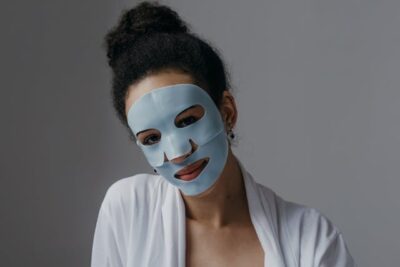Have you looked in the mirror recently and noticed that some parts of your skin look darker than others? If so, it is a result of hyperpigmentation. Although anyone can experience it, people who have darker skin, spend too much time outside without sunblock. Or suffer from skin conditions such as eczema and are more likely to develop hyperpigmentation.
Types and Symptoms of Hyperpigmentation
Hyperpigmentation is either localized or diffused. Localized pigmentation includes sunspots, melasma, and post-inflammatory hyperpigmentation. Diffuse hyperpigmentation, which can be metabolic, hormonal, drug-induced, or malignant, is due to underlying issues and is not considered a primary skin condition. Common reasons for these conditions include vitamin deficiencies, hormonal conditions, use of NSAIDs or certain other medications, or due to melanoma or other types of skin cancer.
Both types of hyperpigmentation have similar symptoms. They may include brown or black patches of skin, discoloration after inflammation, discolored patches that turn darker in the sun, or raised dark patches. Depending on the type, skincare products like azelaic cream may ease symptoms.
How Hyperpigmentation Affects Self-Esteem
When someone deals with hyperpigmentation, it is easy to fall victim to low self-esteem. In fact, one Indian study of 272 patients who had skin conditions showed that more than 11% of those who had vitiligo suffered from anxiety related to their disorder, and nearly 13% were depressed. Those who had dermal macular hyperpigmentation had a depression rate of nearly 25% and an anxiety rate of almost 19%. People who have hyperpigmentation on the skin often end up self-isolating by avoiding dating and other social interactions. Over time, that isolation makes the depression and anxiety worse.
Supporting Individuals with the Condition
The best way to support someone who has a hyperpigmentation condition is to help them boost their self-esteem. Even if your friend rarely attends social events, it’s still important to keep inviting them so they know you think of them. When you do see them, compliment their outfit, hair, or other parts of their appearance, or even better, remind them of what a wonderful person they are in general.
Not everybody will want to talk about their skin condition, so avoid being the one to bring up the topic. However, if your friend vents to you or tells you about new treatments they’re considering, be an active listener, be encouraging, and express any concerns with tact, compassion, and kindness.
Products to Improve Uneven Skin Tone
While hyperpigmentation may never disappear completely, you can use skincare products to lessen the appearance of it. Exfoliation is one of the most important methods of evening out skin tone, so it is a good idea to invest in good exfoliant brushes, gloves, and scrubs. Using products that have certain ingredients in them, such as those with niacinamide and azelaic acid, may also be helpful. Remember to invest in a good moisturizing sunblock as well. If you are dealing with hyperpigmentation of the skin, talk to your doctor or a dermatologist to determine the underlying cause and which treatment options are best for you. Always purchase skincare foundation and other products from a reputable company.
Related Post:







